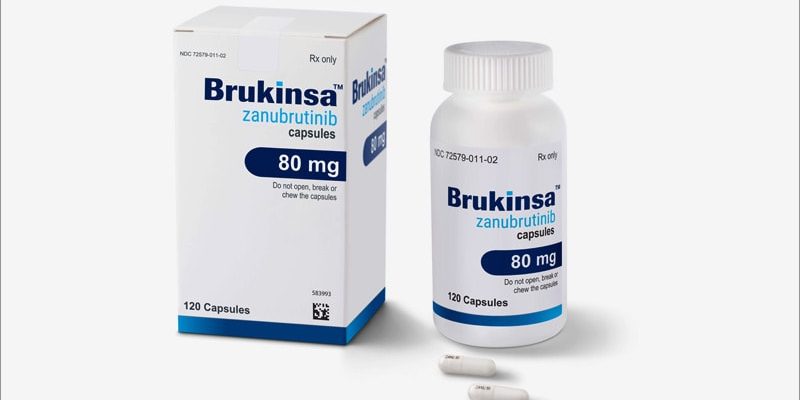The US Food and Drug Administration (FDA) granted accelerated approval for zanubrutinib (Brukinsa) to treat patients with chronic lymphocytic leukemia (CLL) or small lymphocytic lymphoma (SLL).
The approval for the second-generation Bruton’s tyrosine kinase (BTK) inhibitor expands on the drug’s previous approvals for mantle cell and marginal zone lymphoma.
“We have seen striking data from the BRUKINSA development program demonstrating significant and consistent efficacy across CLL patient subtypes, including the high-risk del17p/TP53 mutated population, and regardless of treatment setting,” Jennifer R. Brown, MD, PhD, of Dana-Farber Cancer Institute in Boston, said in a press release from drug developer BeiGene.
The FDA’s decision was based on two phase 3 trials — SEQUOIA and ALPINE. The SEQUOIA trial assessed 479 patients with treatment-naive CLL/SLL who either received zanubrutinib until disease progression or unacceptable toxicity or bendamustine plus rituximab for 6 cycles. Median progression-free survival was not reached in the zanubrutinib arm and was 33.7 months in the bendamustine plus rituximab arm (hazard ratio, 0.42).
In a separate, nonrandomized SEQUOIA cohort, investigators assessed zanubrutinib in patients with a 17p deletion and found an overall response rate of 88%. In addition, over the 25-month follow-up, the median duration of response was not reached.
The ALPINE trial included 652 patients with relapsed or refractory CLL/SLL who received either zanubrutinib or ibrutinib. The overall response rate was 80% in the zanubrutinib arm vs 73% in the ibrutinib arm, and the median duration of response was not reached in either arm over the 14-month follow-up period. Median progression-free survival was not reached in the zanubrutinib arm and was 35 months in the ibrutinib group.
Brown, a lead investigator on both drug trials, suggested that, given the improvements observed in progression-free survival, zanubrutinib could become the standard of care in this setting.
In the ALPINE trial, treatment discontinuation rate was lower among patients receiving zanubrutinib (26%) vs ibrutinib (41.2%) with most discontinuations a result of adverse events or progressive disease.
And across both trials, the most common adverse reactions were neutrophil count decreased (42%), upper respiratory tract infection (39%), platelet count decreased (34%), hemorrhage (30%), and musculoskeletal pain (30%).
For more from Medscape Oncology, join us on Twitter and Facebook
Source: Read Full Article
